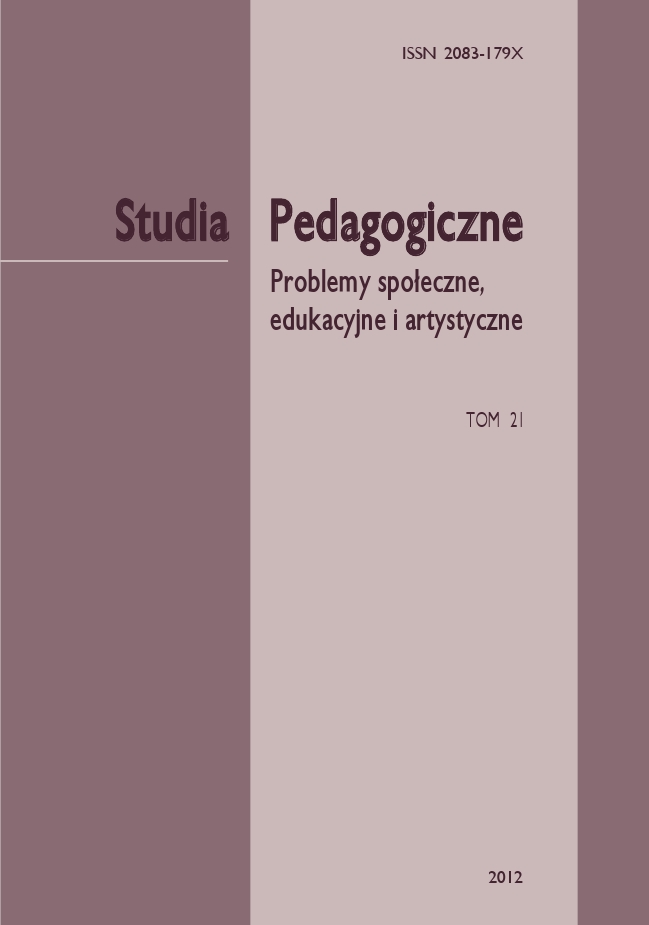Świat na językach dzieci — ewolucja konceptualizacji w okresie nauczania zintegrowanego
The World on the Tips of Children‘S Tongues - The Evolution of Conceptualization in the Period of Integrated Teaching
Author(s): Dorota BełtkiewiczSubject(s): Language acquisition, Cognitive linguistics, Preschool education, School education
Published by: Wydawnictwo Uniwersytetu Jana Kochanowskiego
Keywords: conceptualization; linguistic picture of the world; child speech development; children’s evaluation; verbal expression of emotions; definitional calques; children’s definitions; concrete associations;
Summary/Abstract: The basis of children’s conceptualisation expressed in defining concepts are their own or others’ ideas which are invoked by a child by way of concrete or abstract associations. Changes in this area take place with particular intensity in the integrated education period (between ages 6 and 9). 6- year- old children base on individual past experiences, though definitional calques can also be observed, constituting expressions taken directly from “adults’ language”, incomprehensible for children. 9- year- old pupils refer to past events, since the past is very important for them, while the concepts are related to the present, which is an indication of the extension of time frames in the integrated education period. Objectivity is an evidence of the total departure from egocentrism still observed in kindergarten children. Linguistic picture of the world is influenced by words and their forms appearing in child statements as well as those which are not manifested. Kindergarten children base on common- sense everyday knowledge, while third grade students on the general one, though not yet scientific. The axiological sphere in child statements is disclosed by evaluative adjectives and verbs. The names of values do not appear earlier than in 9- year- olds, which can be explained by the ability to comprehend and name abstract concepts which develops in the integrated education period. The use of a personal form is also an important element of child utterances. The first person singular and plural add an individual character to 6- year- old children’s utterances. Statements are thus subjective and the attitude may be derived from child egocentrism. Older children rarely use “I” or “we” in their utterances. Emotions accompanying the utterances in the form of words and non- verbal means of expression reflect children’s attitude to the world. Mainly kindergarten children’s statements are of an emotional character. 9- year- old students take a more static and neutral stance. The ratio of home and peer environmental impacts change dramatically in the integrated education period, introducing into a child’s conscience the areas of scientific disciplines, abstract phenomena and social relations. Nevertheless, these two sources of knowledge about the world are indispensable for to the proper child development.
Journal: Studia Pedagogiczne. Problemy Społeczne, Edukacyjne i Artystyczne
- Issue Year: 21/2012
- Issue No: 21
- Page Range: 111 - 126
- Page Count: 16
- Language: Polish

